SNE position statement - Regulating Sliimming foods in the EU: Helping overweight and obese consumers lose weight safety and efficiently
Specialised Nutrition Europe (SNE), representing the interests of the specialised nutrition industry across Europe, welcomes the 21st European Congress on Obesity and the occasion of European Obesity Day on 23 May, which acknowledges the growing burden of overweight and obesity in Europe.
In light of current legal uncertainty in Europe for slimming foods for overweight and obese consumers, SNE would like to emphasize the role and value of these products. There is a clear need for balanced and appropriate legislation to be set at European level in order to more effectively tackle this societal challenge and provide consumers with the products they need to match their needs.
Obesity in the EU has reached epidemic proportions and its prevalence is increasing with over 50% of EU consumers classified as overweight and 20% obese. Dieting and physical activity are key factors for treating obesity, however safe and efficient weight loss is complex and requires significant changes in lifestyle and behaviour while preventing nutritional deficiencies and imbalances. After weight loss, other challenges surface and it is essential to stabilize weight and maintain a healthy lifestyle and relationship with food.
Acknowledging these complexities and using reliable nutritional science, the European specialised nutrition industry has developed a range of foods specially formulated for safe and efficient weight loss and weight maintenance. These specific products provide a toolbox which support different steps in weight loss programmes and satisfy a range of ‘food cultures’ within the European Union.
These products contain a high nutritional density in order to guarantee recommended intakes of essential nutrients while limiting loss of muscle mass and deficiencies, in the framework of a diet with restricted energy intake.
The nutritional composition and labelling requirements of slimming foods are strictly regulated in order to prevent excesses and deficiencies. In addition, on the basis of extensive scientific literature, the European Food Safety Authority has positively evaluated health claims for "weight loss” and “stabilization of weight after weight loss” on slimming foods.
Following the adoption of new EU rules to govern these products in June 2013 (Regulation (EU) 609/2013 on Foods for Special Groups), several ‘follow-up’ activities will now be required in order to ensure legal certainty for slimming foods products. In this context, the European Food Safety Authority will in December 2014 deliver a scientific opinion on Low Calorie Diets and Very Low Calorie Diets, after which the European Commission will publish delegated acts to finalise the legislative future for these types of slimming foods.
In parallel, total and partial meal replacements will be moved to general food law, and will require adequate and appropriate amendments in the Food Information and Nutritional and Health Claims Regulations, in order to ensure a soft landing.
It is essential that European decision makers adopt a balanced and appropriate approach for all slimming food categories in order to ensure that overweight and obese consumers in Europe will continue to have access to the products they need to manage their specific dietary needs.
Notes to editors:
- Specialised Nutrition Europe (SNE) is the trade association representing the interests of the specialised nutrition industry across the European Union. SNE members are the national associations of 16 Member States and their members are the companies producing foods for particular nutritional needs, known at EU level as 'foods for specific groups'.
- SNE members provide tailor made dietary solutions for populations with very specific nutritional needs including infants and young children, individuals under medical supervision, sportsmen, overweight and obese consumers, and those suffering from coeliac disease.
- There are a range of slimming foods that are used for different purposes:
o Very Low Calorie Diets: diets based on specific slimming foods exclusively, ensuring a fast change in a restrictive diet (400 to 800 calories/day). The proposed program must be strictly respected. Use of VLCD products with appropriate medical monitoring have been shown to be well tolerated and associated with minimal side effects. (Anderson, J. 2004).
o Low Calorie Diets: diets based on specific slimming foods exclusively, for an 800-1200 calorie diet. Advice of a healthcare professional is recommended should these products be used for more than three weeks.
o Total Meal Replacements: 200-400 calorie products, formulated to replace one or two meals /day and to be used as part of an energy restricted diet, other foodstuffs being a necessary part of the diet.
o Partial Meal Replacements / snacks: to replace one dish of a multiple course meal, or one snack, contributing to reach an optimal protein daily intake in the context of an overall energy restricted diet, or as a support for the stabilization of the weight loss. Often associated with meal replacements in weight loss programs.
